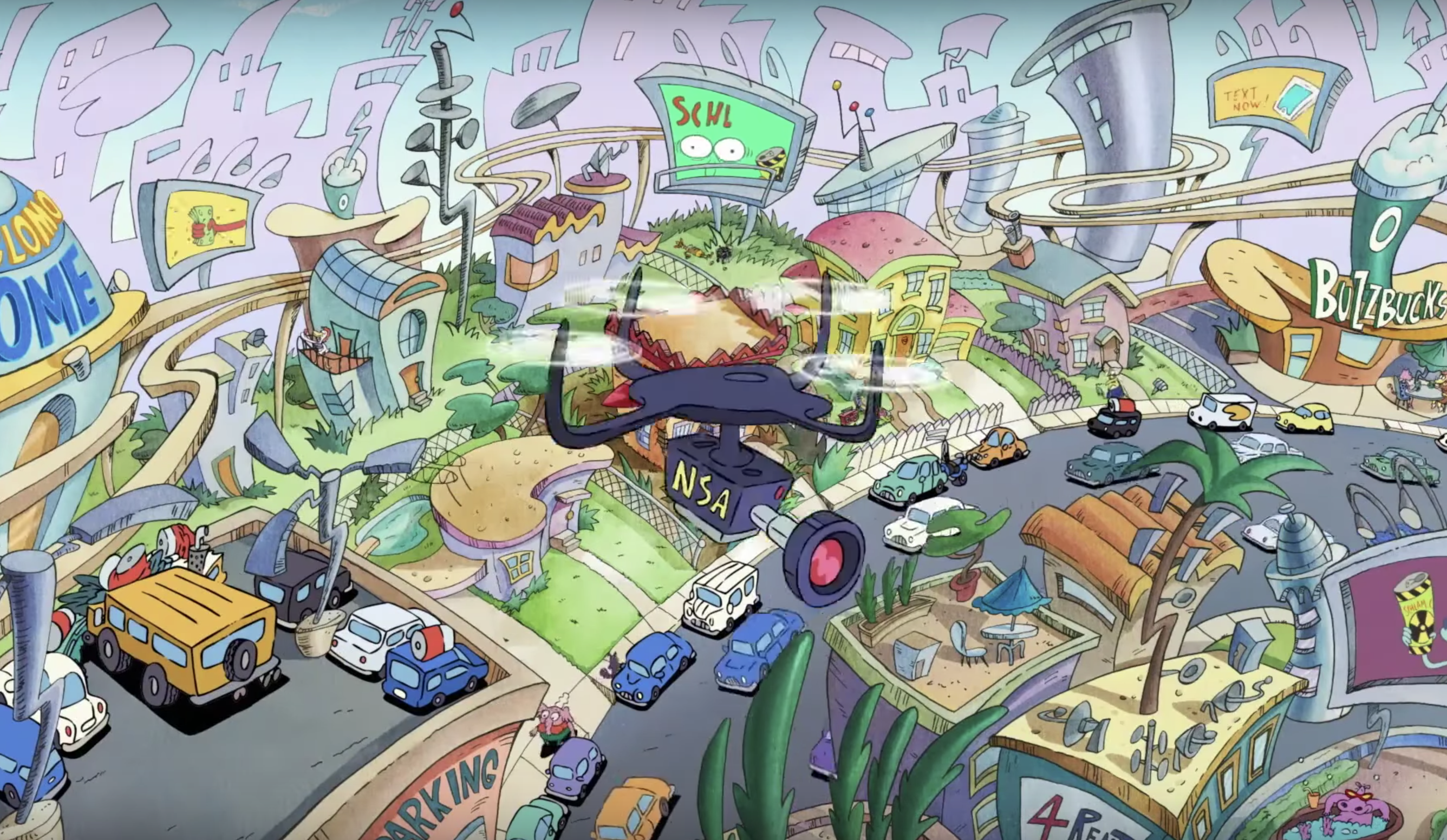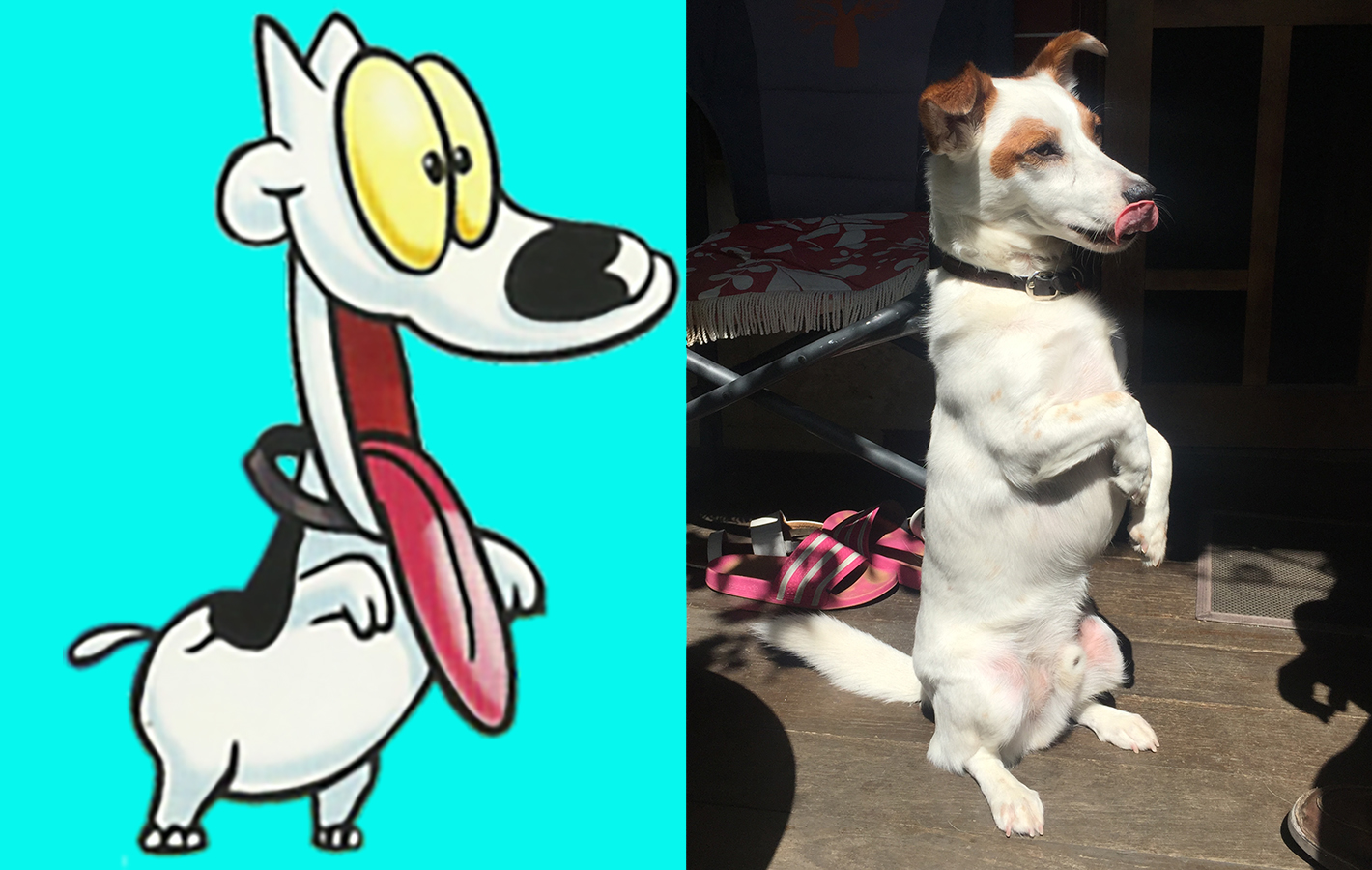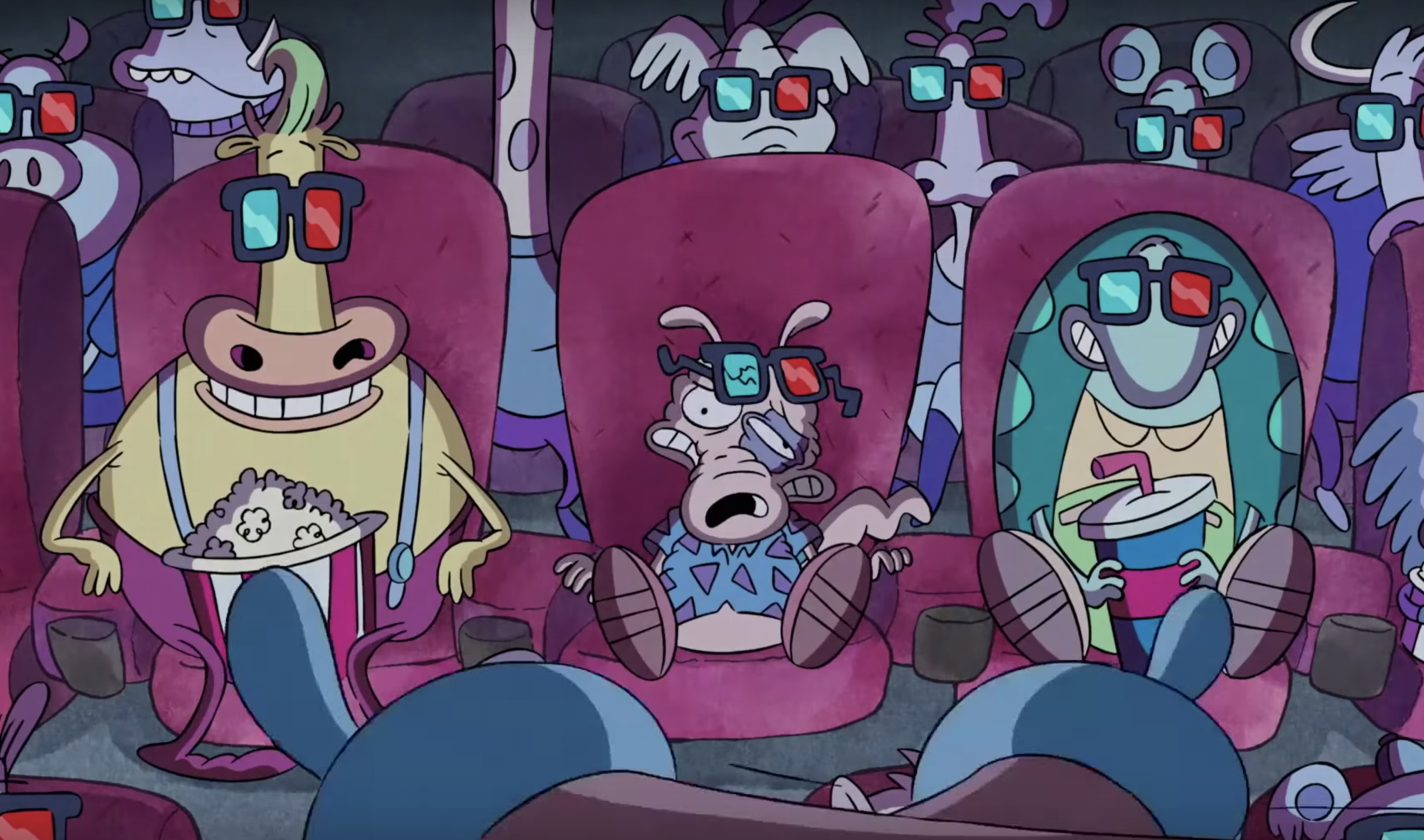This time last year, I was living in a loft apartment above a working glue factory in Bushwick, sweltering in unbearable heat, wearing nothing but an oversized tropical shirt. I had moved from my hometown of Perth (Western Australia) to Brooklyn (New York) to perform comedy and further my madcap writing career.
It wasn’t my first extended stint in America, nor my last, but it was the stint that confirmed my long-held suspicion re: The Greatest Nation on Earth™: America is a cartoon.
Last summer, the glue factory overheated. Its exhaust pipe ran under my bed, causing my shoebox-sized room to feel like a microwave in a house fire. My floorboards burned the soles of my feet, and there was a faint whiff of, well, glue.
“You’re Australian,” our panicking Airbnb guest told me. “This kind of heat is normal, right?”
Yeah, nah m8.
Americans have a lot of assumptions about Australia. They tend to think we live in the “Outback” in rickety lean-tos, fighting off an unending legion of kangaroos, crocodiles, snakes, and giant spiders. It can wear thin at first, but you learn to enjoy American ignorance as you come to understand that ignorance is the closest thing America has to a consistent, unifying cultural practice. Being an Australian in America means hearing the same “did a dingo eat your baby?” joke day in and day out, and though it’s tempting to question the wit of a 40-year-old joke about a woman whose infant was tragically eaten by a wild dog, you learn to nod and say, “yeah m8” and “ that’s not a knife, this is a knife,” etc. Best not to burst the bubble of a people whose schools make them start the day with a “Pledge of Allegiance” (very, very, very weird!).
But for me, an Australian living in a Big American City with a growing cast of loud and lovable characters in my life, slowly being asphyxiated by glue fumes, getting gut-punched by New York’s unyielding dickery, one show spoke to my experience with eerie specificity.
Rocko’s Modern Life.
Yes, the classic Nicktoon about a rock wallaby named Rocko navigating the American nightmare in the tail end of the 20th century: Rocko’s Modern Life was a caustic spoof of post-Reagan American capitalism, exceptionalism, and dysfunction.

The show placed its very anxious (hello) Australian protagonist in a world of perverse caricature and logo hysteria. “We Will Own You” is the slogan of the show’s omnipresent mega-corporation, Conglom-O, and it's a slogan I learned to appreciate while witnessing folks fall into the maw of the American “dream.” Laundry day, garbage day, grocery day: These were all “very dangerous” days to Rocko, as they eventually would be for me. I was lost, stupid, and struggling to walk on “black ice” (what the fuck?) balancing five bags of groceries and a case of watery beer.
I found myself living snippets of Rocko’s Modern Life IRL. The episode “Love Spanked,” where Heffer creates a dating bio for Rocko and sends him on a string of increasingly bizarre and kinky dates, now plays like a dementedly uncanny mirror of my New York love life.
Rewatching Rocko’s Modern Life, and watching its Netflix reboot, Rocko’s Modern Life: Static Cling, after 10 months of living in New York, I find myself relating to Rocko more than I find myself laughing at his expense. What this show has always managed to capture better than any of its peers is the essence of exhaustion. Everything in Rocko’s world is too much: too many sight gags, too many fart jokes, too many warped lines, too much capitalism, too much unceasing and relentless noise. Exhaustion is America’s first and truest state.
And yet, Rocko’s Modern Life beautifully captures that feeling of being an outsider somehow in love with the “too muchness” of America; its ignorance, its hysteria, and its big heads. Like Rocko, I found myself surrounded by loving and goofy friends, who, like Heffer, accepted our misadventures as “a hoot.”
I found myself living snippets of Rocko’s Modern Life IRL. The episode “Love Spanked,” where Heffer creates a dating bio for Rocko and sends him on a string of increasingly bizarre and kinky dates, now plays like a dementedly uncanny mirror of my New York love life—right down to being coupled with a friend on a dating show (this happened).
On the other end of the spectrum, “Who’s For Dinner” opens with Rocko on the phone to his dear old mum, saying to his dog, “You know, Spunky, it’s good to be on me [sic] own. But sometimes, I miss me family.” He then looks through a family photo album which consists of photos of his dead aunt (“Aunt Mathilda, died waltzing”) and uncle’s tombstones, which, for me, is so close to the bone as to make me wonder if I’ve also been drawn by some depressive animator somewhere.
(By the way, my dog, Buckley, bears a stronger-than-passing resemblance to Spunky:)

Americans rarely consider the Australian perception of them, a perception which is shaped by mass media, aka American media. For many Australians, America is imagined through its pop culture and its news. These have, conveniently, become the same thing. But our unilateral fixation runs a bit deeper than the cheeky masturbation puns of America’s finest children’s programming.
In brief: America is an empire, and Australia has been one of its most gleeful vassals since it dropped those two atomic bombs on non-military cities during World War II. American friends in Australia are always shocked to learn how much we know about US history, politics, media, and culture, but we couldn’t escape it even if we wanted to. America says jump, and we say we’ll invade Iraq.
Australians who have not traveled America view it as a pornographic dystopia. That is to say, a fun dystopia. We envision a shambolic, barely First-World hellhole replete with crumbling infrastructure, wacky moral righteousness, 19th-century labor laws, a C.H.U.D. President, and a mass shooting on every street corner.
My generation was maybe the first in Australia to be ultra-Americanized. We were raised on an unending deluge of American entertainment: music, film, fashion, sitcoms, reality TV, video games, toys, and, most importantly, cartoons. Media shaped our view of America in the way Crocodile Dundee shaped America’s view of us.

As such, Australians who have not traveled America view it as a pornographic dystopia. That is to say, a fun dystopia. We envision a shambolic, barely First-World hellhole replete with crumbling infrastructure, wacky moral righteousness, 19th-century labor laws, a C.H.U.D. president, and a mass shooting on every street corner.
That last one: Australians are warned about gun violence before we visit America. Most Australians who haven’t travelled the states will offer “I don't want to get shot” or “I don't want to get shot and then receive an $80,000 hospital bill” as an excuse. I, myself, was held up at gunpoint in New Orleans five years ago, but hey, I’m fine, plus they were nice kids, if a bit well armed for their age (15, 14, and 12).
Point is, the curious but resigned lens through which Rocko of Rocko's Modern Life navigates it all is deeply true to the Australian-in-America experience.
When with fellow Aussies in New York, I tend to drop my glue-factory cool and indulge in the wonder of modern Americana. The phrases “just like The Simpsons,” “just like in Seinfeld,” and “just like in Escape from New York” are bandied back and forth between Australians on the L train like a jar of amyl nitrate at Bossa Nova. I have seen that thing on TV and hey, here it is, screaming at a dead rat at the Jefferson stop. Beautiful.
Like Rocko, I was in America—not Australia—because in America, especially Bushwick, especially above a glue factory, it is hard to feel weird.
America is a cartoon, sure, but hey: I love cartoons.
from VICE https://ift.tt/329Uek0
via cheap web hosting
No comments:
Post a Comment